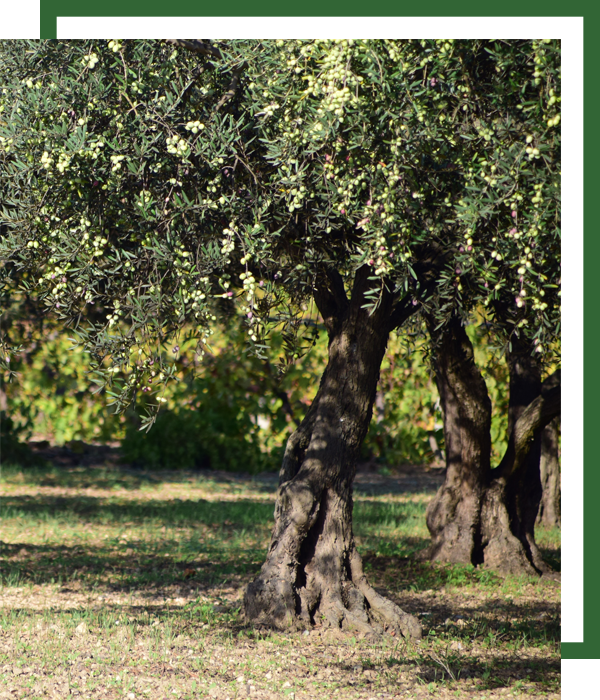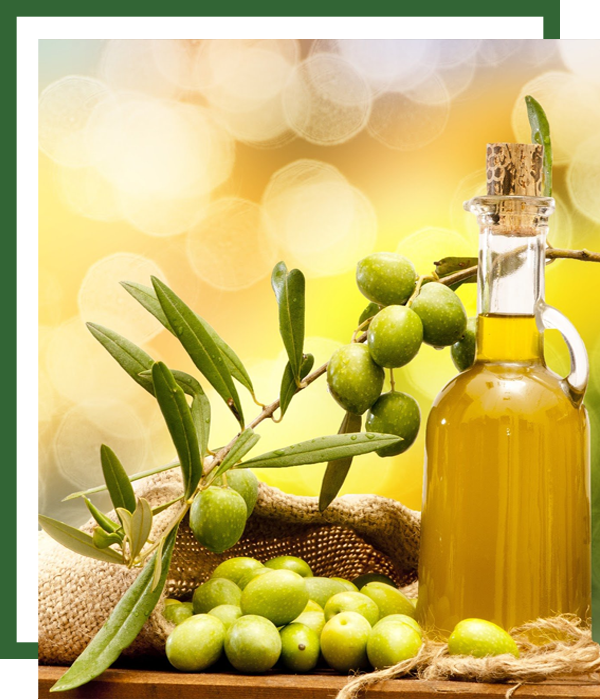| |
| |
OLIVE OIL
Chemical composition and beneficial properties
Olive oil is one of the first fatty substances used by the Mediterranean peoples both in nutrition and in medicine and cosmetology, as medicine and cosmetics.
Today, due to its special beneficial and organoleptic characteristics and its contribution to the prevention of many diseases, it is of great interest to the scientific world, health professionals and consumers.
Olive oil categories
1. Virgin Olive Oil: obtained from the fruit of the olive, by applying mechanical methods (cold extraction) or other natural treatments that do not alter the oil (washing and pressing of the olive fruit, decantation, centrifugation and oil filtration).
This is distinguished into:
• Extra Virgin: acidity (free fatty acid content) < 0.8% expressed as oleic acid
• Virgin: acidity < 2%
2. Complex Olive Oil: mixture of refined and virgin olive oil with acidity < 1%
3. Pomace oil: mixture of refined pomace oil with virgin olive oil with acidity < 1%
|
|
|
|
|
Olive oil consistency
Olive oil consists of 99% fatty substances (triglycerides and free fatty acids) and 1% polar components (polyphenols, tocopherols and other natural antioxidants).
Nutritional / biological value of virgin olive oil
As a fatty substance it is a concentrated form of energy (1g provides 9 calories) and as a vegetable oil rich in good fats (monounsaturated) and natural antioxidants, it protects against many diseases and contributes to improving human health.
Specifically, olive oil contains fatty acids, fat-soluble provitamins and vitamins, antioxidants, bioactive substances and additional beneficial properties.
Daily consumption of a reasonable amount of olive oil contributes to:
- maintain normal blood pressure
- the good functioning of the digestive system and protection against the development of ulcers in the duodenum - finger and in the stomach
- the gradual digestion of carbohydrates and avoiding the rapid increase in blood glucose, acting beneficially against diabetes
- the development of the brain and nervous system in infants (when consumed by the mother while breastfeeding)
- the improvement of fatty liver
- the prevention of gallstones
- maintain body weight.
|
| |

|
|
|

| |
|
Nutrition and health claims
The European Food Safety Authority (EFSA) approved the Health Claim that consumption of olive oil polyphenols protects LDL - cholesterol from oxidation.
This is achieved by the daily consumption of "5mg of hydroxytyrosol and its derivatives (eleuropein and tyrosol complex) derived from 20g. olive oil" (20g correspond to 3 tablespoons).
In addition, the Nutrition Claim applies that, by its very nature, olive oil is a "High Monounsaturated" food.
Production of quality olive oil
Virgin olive oil is the only oil that is not subject to any processing.
For the production of Quality Olive Oil with low acidity and high content of bioactive components, the best possible conditions should be applied during the harvesting, storage and pressing of the olive fruit.
Specifically, olive producers should ensure that the olive fruit:
- be healthy and not stored for a long time after harvest, since prolonged residence time and high temperatures degrade the quality of the olive oil produced, and
- to be stored in a cool, shady and well-ventilated area.
|
|
| |
|
